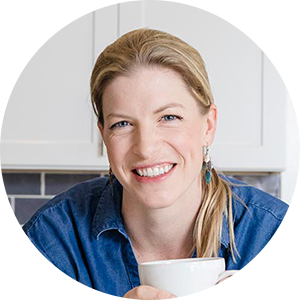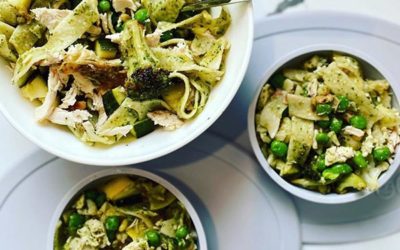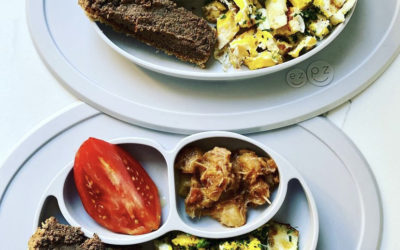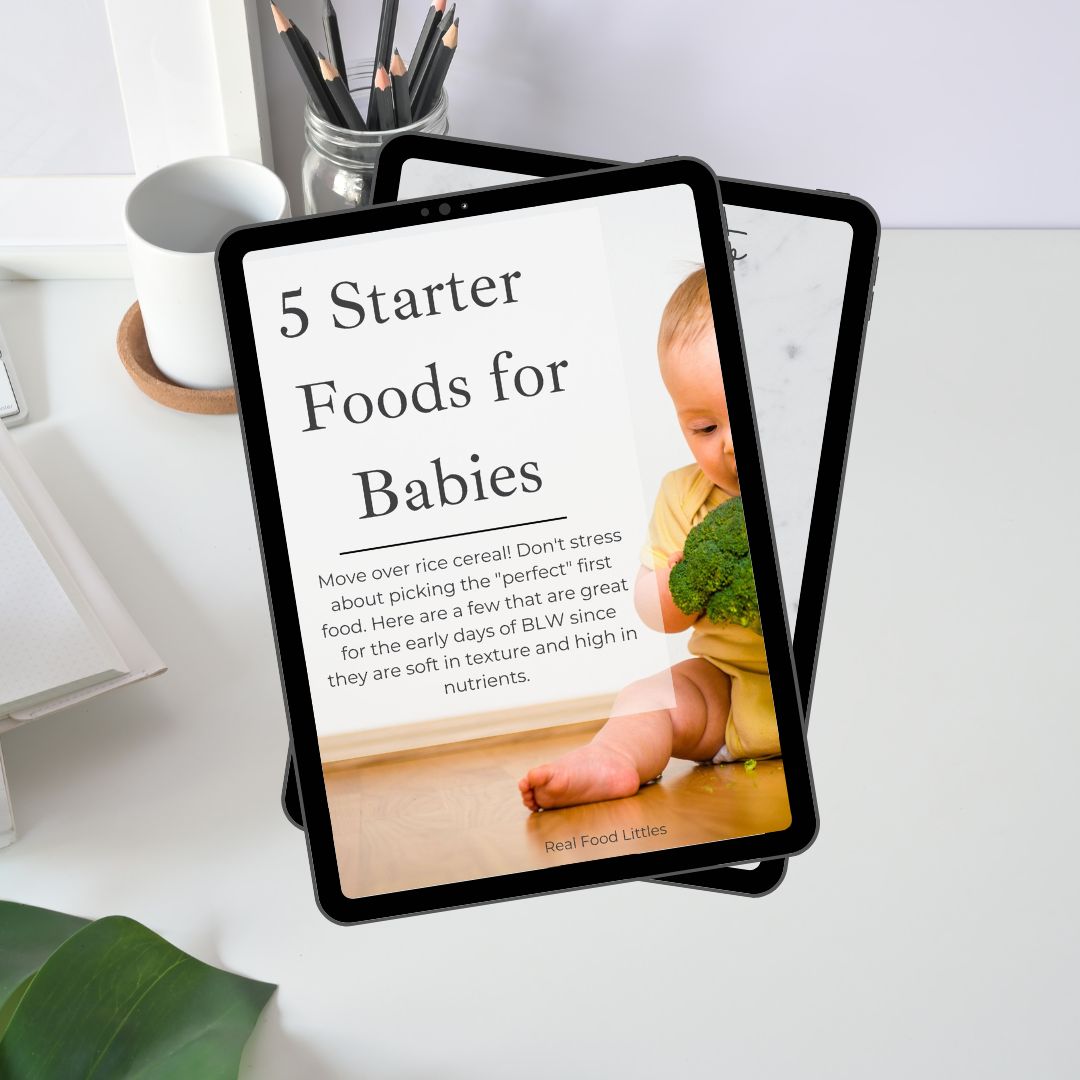As parents, we all want to do what is best for our children. One of the first messages women receive when pregnant is about the benefits of breastfeeding. This is for good reason – the research on the nutritional benefits of breastmilk is indisputable. Whether you choose to/are able to breastfeed or not, we can all agree that the expectation and pressure to do so is strong. VERY strong. I say that as a mom who was in the messy middle of mostly pumping but also breastfeeding and formula feeding to keep up with twin babies.
We have a staggering amount of information and resources available to support women breastfeeding (until they have to go back to work of course), but curiously, we put WAY less emphasis on starting solids. What’s interesting about this is that breastfeeding lasts for a few days to a few years depending on the mother/baby, but we eat food for our entire lives after 6 months – 75-85+ years on average. A lifetime of healthy eating or poor eating will have a much greater impact on a person’s overall well-being than being formula fed or breastfed.
Most parents go to the 6 month well visit with their pediatrician, are given the green light to start solids and handed a pamphlet saying to focus on iron and avoid high choking risk foods. Pediatricians are absolutely fantastic at what they do, but they simply don’t have the time to go over all the nitty gritty details, research, methods, strategies etc in a 30 minute appointment. With this area of development, you have a tremendous amount of control over your child’s eating trajectory through the toddler years and beyond. Research shows that babies palates are remarkably adaptable in the first few months of starting solids. This makes perfect sense from an evolutionary perspective, since babies need to learn to eat the foods their families eat. What this comes down to is that we can prime a baby’s palate for nutrient dense food so that they not only eat it while they’re babies, but that they learn to LIKE it so that they will eat it for the rest of their lives.
Your baby will ultimately sleep through the night. They’ll ultimately figure out how to use the toilet. But the period from 6-12 months is a really unique time where an intentional approach to introducing as many flavors and textures as possible will have an immense impact on how your baby eats down the road. If you’d like to give your baby the best start possible, check out The Real Food Baby. It has everything you need to raise a happy, healthy eater for life.
And if you’re just getting started? Check out my free Baby-led Weaning 101 Workshop!




